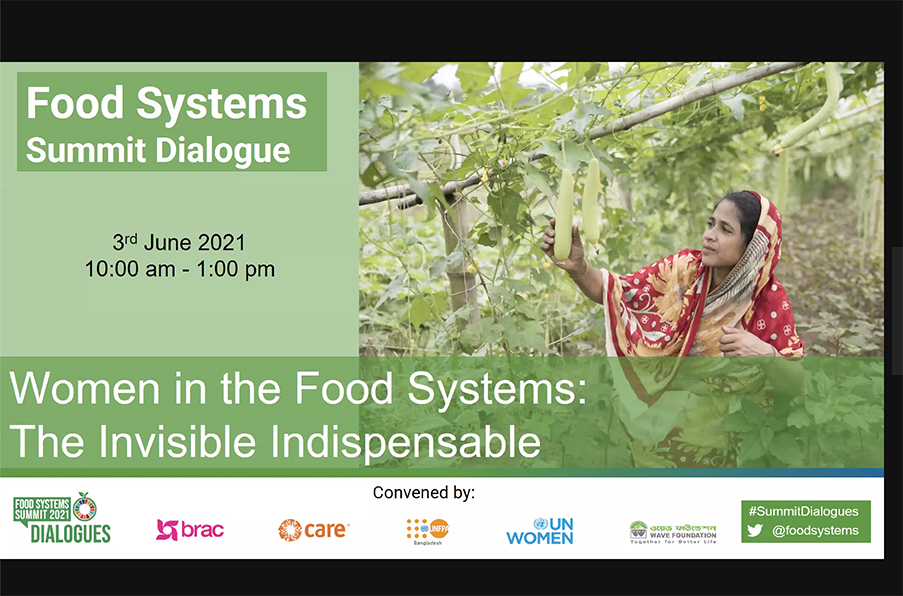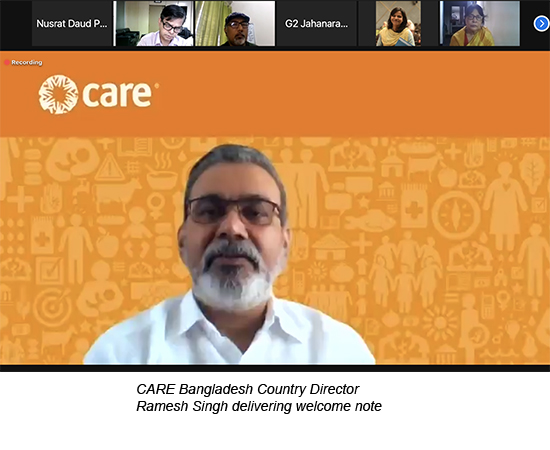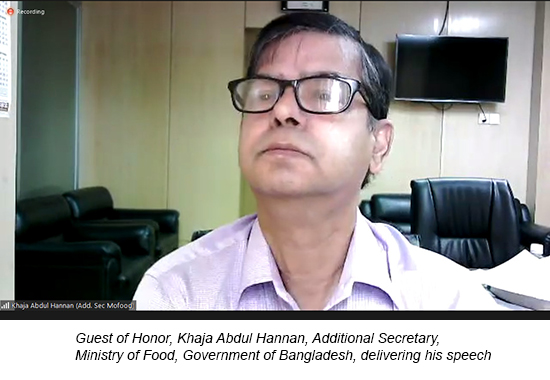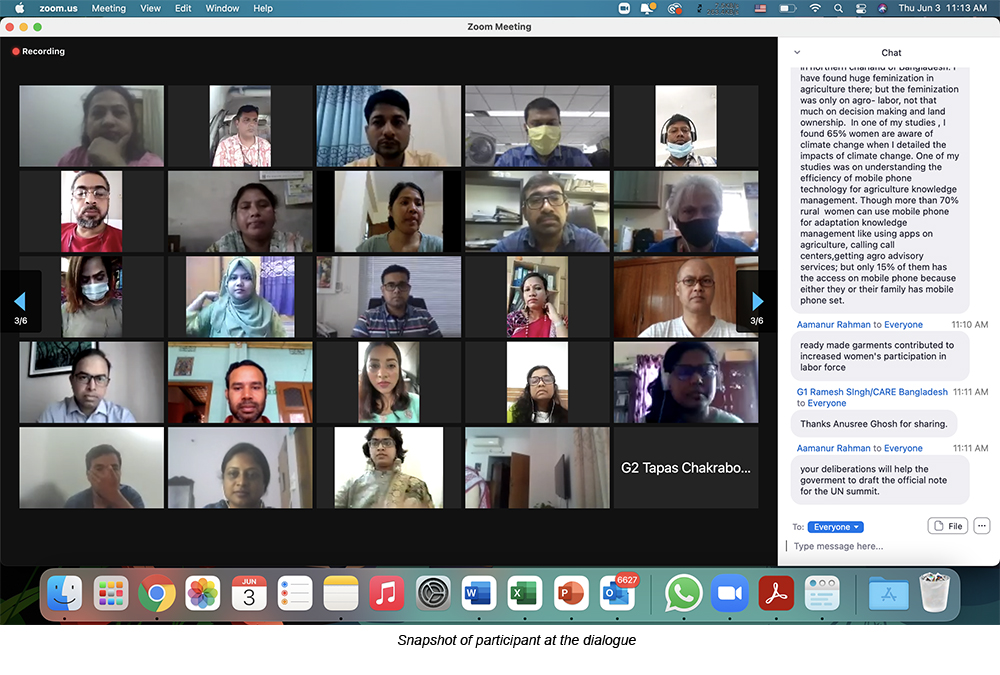
Women play critical roles in ensuring food security and proper nutrition of families. According to the Labor Force Survey (2016-17), women account for nearly half of the work force in agriculture and nearly 3/4th of the rural female work force is engaged in agriculture in Bangladesh. Despite their crucial role in delivering food security, women are common victims to malnutrition, unhealthy food consumptions, lack of accessibility to necessary healthcare services among other crises. It is essential to recognize the position and challenges of women and formulate action plans accordingly to ensure a sustainable and inclusive food system for the society.
Experts shared these observations at an independent virtual dialogue titled “Women in the Food Systems: The Invisible Indispensable” held on 3 June 2021 organized by CARE Bangladesh in association with BRAC, UNFPA, UN Women and Wave Foundation. This dialogue is organized as part of the preparation for the upcoming UN Food Systems Summit 2021. The event was attended by government officials, development practitioners, academia, experts, media professionals. The discussions from this event will support developing a national vision for the future of women in the food system.
Ramesh Singh, Country Director, CARE Bangladesh delivered welcome remarks at the event. He noted that more than 90% of family farms are dependent on their family members' labor; both men and women work in the farms. Often women family members act as de facto heads of the family. “CARE Bangladesh wishes to commit its support to complement the efforts of Bangladesh Government, development partners, nutrition actors and others. We firmly believe concerted efforts can help to reach our "Women in Agriculture and Food System" targets in the coming days.”, he added.
 Khaja Abdul Hannan, Additional Secretary, Ministry of Food, Government of Bangladesh attended the event as Guest of Honor. He said, "Women's participation in labor force and education has increased manifold over the last two decades. The government has undertaken policies and programs to ensure food and income security to women. The Ministry of Food has initiated series of dialogues to incorporate the concerns around food systems which will be culminated at the national dialogue and further shared at the UN Food System Summit to be held in October 2021.”
Khaja Abdul Hannan, Additional Secretary, Ministry of Food, Government of Bangladesh attended the event as Guest of Honor. He said, "Women's participation in labor force and education has increased manifold over the last two decades. The government has undertaken policies and programs to ensure food and income security to women. The Ministry of Food has initiated series of dialogues to incorporate the concerns around food systems which will be culminated at the national dialogue and further shared at the UN Food System Summit to be held in October 2021.”
Mr. A K M Monirul Alam, Director, Field Services Wing, Department of Agricultural Extension, Government of Bangladesh, Dr. Nazneen Ahmed, Senior Research Fellow, Bangladesh Institute of Development Studies (BIDS) and Dr. Mohammad Mainul Islam, Faculty, Department of Population Sciences, University of Dhaka attended the discussion as key speakers. They stressed on the importance of women’s access to agricultural input and services, ownership and control over assets and products to improve the current status of women in the food system. Furthermore, they also raised the point of reviewing contradictions within the current nutrition policy in respect to women and endorsing right to food as a legally binding commitment of the state.
The dialogue arranged separate discussions focused around impact of COVID-19 on women in food systems, impact of climate change and shocks on women, social protection and sustainable livelihood for women, young girls and women in Climate Change, food systems and sexual and reproductive health rights, access to productive resources for women in agriculture. The following recommendations came out from the dialogue:
The dialogue started a rich discussion on various issues that needs to be addressed in order to ensure equitable representation of women in agriculture and it is important to take the key discussions of this dialogue and implement them into strategic action points.
